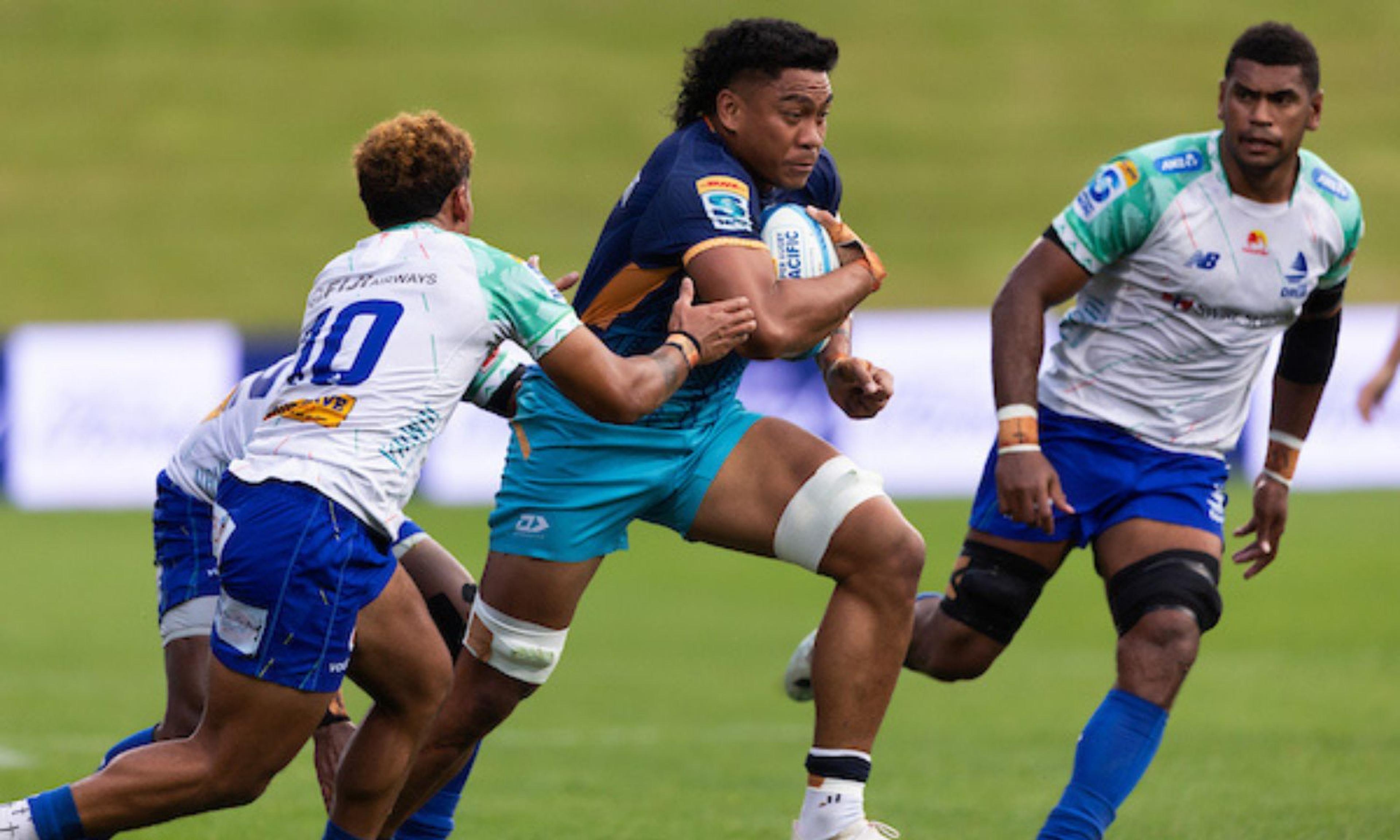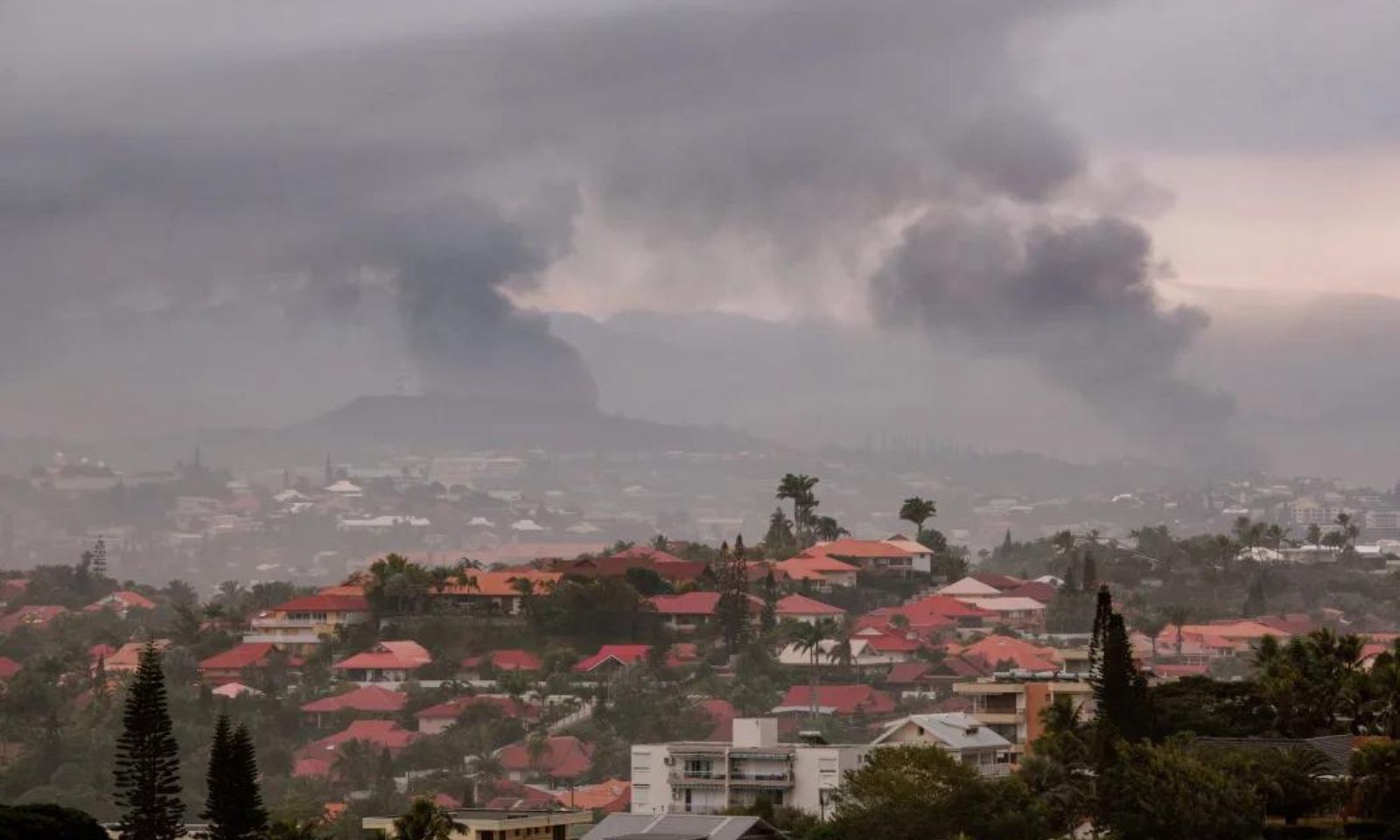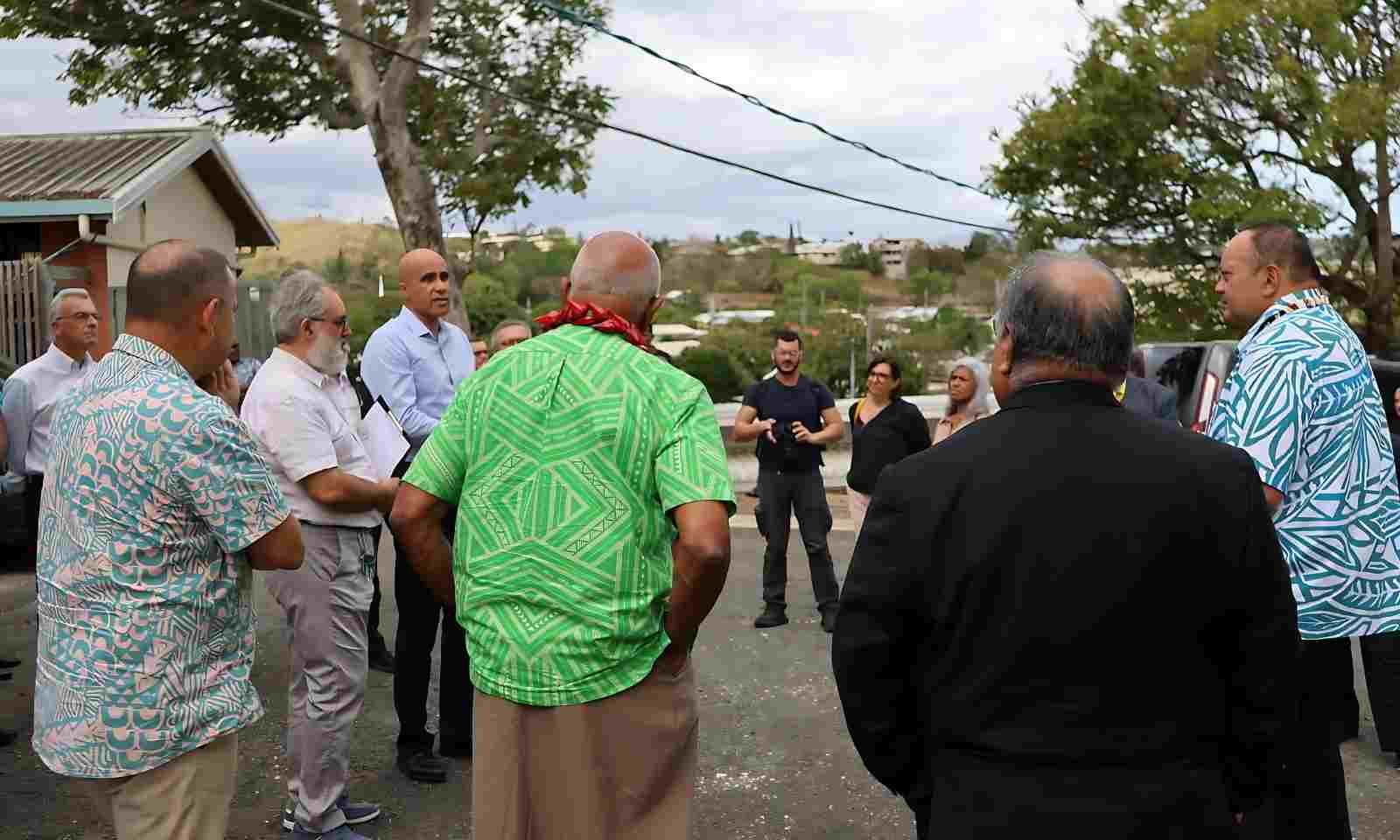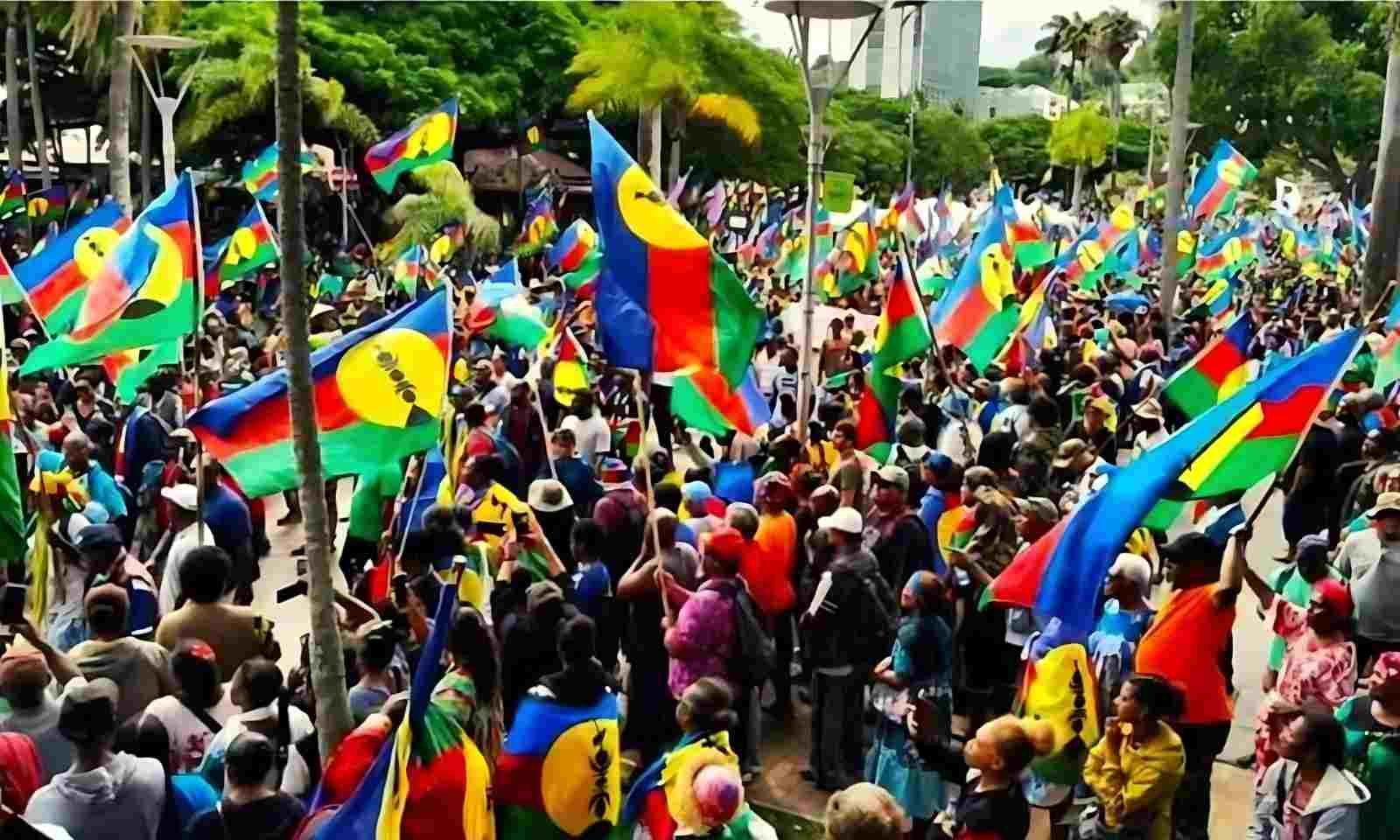

Union Calédonienne members of the FLNKS Executive, one of the key parties during talks with the French government.
Photo/LNC
New Caledonia leaders engage in historic talks with France to shape future governance
Amid lingering tensions following last year's deadly riots, the discussions aim to address complex issues surrounding self-determination, power distribution, and redefining citizenship.


Last-gasp drama and big statements set up Pacific blockbuster in Super Rugby opener

A.R.T sets new Pacific music pace with ‘First Thursday’ releases



Last-gasp drama and big statements set up Pacific blockbuster in Super Rugby opener

A.R.T sets new Pacific music pace with ‘First Thursday’ releases

Political leaders in New Caledonia, representing pro- and anti-independence groups, met with representatives of the French government in Noumea this week.
This is the first time since 2021 that all political parties have returned to the table to discuss the future of the French Pacific territory following the last referendum over independence, in which voters chose not to pursue self-rule.
France's Overseas Minister Manuel Valls visited Noumēa after initial talks started in February.
Valls announced that these discussions aim to establish an agreement about New Caledonia's future governance and administration.
The meetings also come nearly a year since the deadly riots of last May, where pro-independence protests erupted after French President Emmanuel Macron announced sweeping electoral reform.
The changes would have allowed new French arrivals in New Caledonia to vote.
Thirteen people were killed in the six-month unrest, with damage to buildings, infrastructure, and businesses totalling millions of dollars.
Local media have reported that despite the positive discussions with New Caledonia's leaders, several major issues could complicate or delay reaching a new agreement to replace the 1998 Noumea Accord, which has guided the territory's operations for 37 years.
Valls outlined the six groups involved in the talks, including those advocating for complete independence from France and those wanting to maintain the current political arrangement.

On 13 May 2024, riots broke out in the capital Noumēa after French President Emmanuel Macron announced changes to New Caledonia's electoral system. Photo/Supplied
All parties have generally agreed to use the draft agreement proposed by the French government as the starting point for negotiations.
Valls also announced that the draft reflects the diverse opinions within the local community, especially between the Indigenous Kanaks, French residents, and other European descendants.
The pro-independence group, known as FLNKS or Front de Libération Nationale Kanak et Socialiste, released a statement saying it is willing to discuss the French government's draft but is cautious about committing too quickly.
FLNKS also expressed concern that the document may reinforce ties to France without providing a clear path to self-governance.

France's Overseas Minister Manuel Valls, left, greets New Caledonian President Alcide Ponga, right, as Senator Georges Naturel looks on in Noumea, February 22, 2025. Photo/Delphine Mayeur
The independence coalition believes achieving full sovereignty is possible and aims to create a fair political solution for all involved.
They have emphasised their commitment to working towards a successful outcome for New Caledonia.
The FLNKS also suggest that the independence movement will not be rushed into a deal based on only this draft:
"This document only reflects an even stronger bond of belonging to France," a coalition statement read.

Pacific Islands Forum Leaders Troika visited New Caledonia last year: Mark Brown, left, Fiji's Sitiveni Rabuka (green shirt), Forum secretary-general Baron Waqa (black), and former PIF chair Hu'akavameiliku Saiosi Sovaleni, of Tonga. Photo/PIF
"It leads us into a period of uncertainty, with no precise timeframe for the transfer of sovereign powers, or even any guarantee that we will be able to exercise our right to self-determination."
The French government's negotiating document aims to address a variety of complicated issues that have created a divide between those seeking independence for New Caledonia and the conservative loyalists who want to stay part of France.
The draft highlights important topics that need discussion and agreement. These include New Caledonia's right to decide its future, how to shift certain powers that France currently holds, and exploring new ways to share authority.
It also considers changes to New Caledonia's political system and power distribution among local governments and governing bodies.
But the pro-independence movement says any agreement must establish laws explicitly tailored for New Caledonia, which could be included in the French constitution.
"We have reaffirmed our willingness to build a fair and shared political solution that will lead us to the achievement of our country's trajectory towards full sovereignty," the Rassemblement-Les Républicains says in a statement.
Another key point is redefining what being a New Caledonian citizen means.

Pro-independence supporters rally in Noumēa. Photo/Supplied
This is significant because of the 1998 Noumēa Accord, which established specific rules for local elections and aimed to ensure better job opportunities for residents of New Caledonia compared to other French citizens living in the Pacific.
Like the Noumēa Accord, any final agreement on these matters would need to create foundational laws specific to New Caledonia.
These laws would define critical principles, institutions and shared values, and set a process for including them in the French constitution.